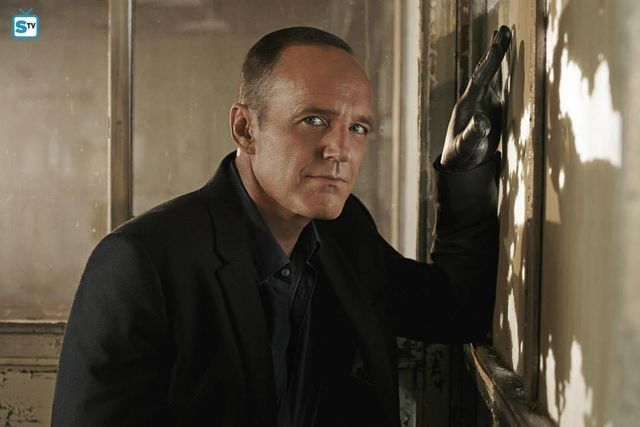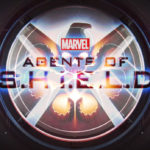When Man Plays God
Death.
A word that stabs the heart with fear, lurks in the shadows of the unknown, and causes people to shy away from discussing because it’s too final and frightening.
In books and movies, when characters we love are in danger, we fear for their lives. Why? Because we don’t want them to be snatched out of the story, never to return. We won’t want to mourn their loss, never again experiencing the qualities that drew us to them.
Realistically, for many main characters, death is but a distant threat, a line of black clouds barely glimpsed on the horizon. After all, we needn’t fear their final demise when the movie has just begun or we’re only partway through the book.
Our innate sense of storytelling reminds us that if the story is about a particular character, he or she can’t die until near the end, otherwise what’s the point of the story continuing? The longer a series goes, the more threatening is the possibility of death, but deep down we expect the majority of the main players to hang around for most of the action.
Still, we don’t want our favorites to die. Once they’re gone, they won’t be back. We, as mortal humans, have no control over the domain of death. Or do we?
We’ve always been fascinated with the idea of death, and not always in a morbid sense. It’s a mystery, and we want to peer behind the veil to see what secrets it holds. It’s no surprise, then, that this desire finds a home in fiction. In a profession founded on what-ifs, we wonder, “What if we could play God and conquer death?”
In recent years, this question has come into the spotlight thanks mainly to a pair of entertainment giants.
After Phil Coulson’s death in The Avengers, Marvel gave us T.A.H.I.T.I., that magical place where death could be beaten by knowledge, skill, and technology.
With its various television and box office productions, DC seems overly fond of revisiting this attempt to play God. A few examples:
- The TV show Arrow makes you wonder if the screenwriters are so in love with the characters that after killing them, they need to find a way to bring them back to life.
- In the current season of Gotham, we’ve been introduced to a strange doctor with tinted eyeglasses and a penchant for dabbling in resurrection techniques. The result? A story where even those who’ve died can’t be completely forgotten. Who knows, maybe they’ll return from the grave.
There are two problems with these scenarios. First, the obvious flaw that we, despite the most advanced technology and science, can’t play God. In the Wheel of Time series, even the world’s most powerful channeler couldn’t use magic to overcome the finality of death.
My goal isn’t to wade into a philosophical or religious study of death and what our attempts to play God mean. Rather, I want to look at it from a storytelling standpoint, which brings us to the second problem. Our fascination with controlling death is clear, but what are the repercussions of that in terms of the story?
3 Storytelling Drawbacks When Man Plays God
1. It removes the threat. If characters can be brought back to life, why worry when someone we care about is endangered? Gone is the tension of battles, the anxiety when the villain has the hero in his clutches or a blade to the throat of the romantic interest. The story takes on a bland hue, robbed of the intricacy provided by a character’s death.
2. It reduces the consequences. Many stories use sacrifice as a central theme. Often, characters don’t literally sacrifice their lives, but some do. Removing the finality of death removes the potency of that act. If characters keep returning *cough* DC *cough*, we become jaded with death scenes because we have the nagging question, “Will this character come back somehow?”
Recently, my family watched an episode of a TV show and one of the characters died. Someone commented, “I’m not buying it.” Therein lies the problem. It’s happened so many times now, we’ve become skeptical that a character’s death actually impacts the story in a meaningful way, other than setting them up for a suspected-and-therefore-not-surprising return.
3. It minimizes death. This ties to the problem above. For viewers, it makes death seem less terrible than it is, a thing to be manipulated at the will of Hollywood directors instead of what it is—a grim reality of life.
Don’t get me wrong. There are examples of this back-from-the-dead trend that work, such as Gandalf—though admittedly his return was the result of divine orchestration. But with how popular this approach has become, such instances are quickly turning cliché.
Stories should always strive to be unique and different. This flood of resurrected characters has become too predictable. And anyway, we all know that when man plays God it never ends well.
What do you think of the impact this trend has on storytelling?








































That’s one of the things I’ve seen played with so fascinatingly in Sword Art Online and Log Horizon. Both “suddenly fallen into video game” anime, but they treat death in an opposite fashion. In Sword Art Online, the gimmick was that people in who died in-VR-game also died IRL through brain stem science babble, and they hammered home the stone-cold terror of death because there are a lot more horrible ways to die in a fantasy video game than IRL.
Log Horizon kept the video-game aspect of respawning, but there are lots of ways that can be horrible, too. In the second season there was a death-cult that started up because when dying they could glimpse their “real” lives and that was the only way they found to deal with their homesickness.
And then there’s good old Fullmetal Alchemist, where human transmutation has given all who watch it vicarious PTSD because two boys wanted to bring back their dead mother.
What about zombies and mummies? Are they a kind of resurrection gone very wrong? For that matter, vampires, too? And, just to more completely list the classic horrors, the Frankenstein monster, a living creature composed of the parts of dead bodies?
One last one. “In his house at R’lyeh dead Cthulhu waits dreaming.” A most peculiar form of death.
I think I had a point I was trying to make, but it got lost on some rabbit trails. Sorry about that.
It seems like, today, zombies and vampires are popular ways of representing what could be considered resurrection or immortality. But with both of them, something is lost of the original person. In the case of the zombie in pop culture, basically the entire person is lost and the body is simply a walking appetite. The vampire might still retain some personality, but it’s little better then the zombie, as it too is controlled by its appetite.
Perhaps it is a kind of consequence of materialism that the popular view of life after death has taken on a dark tone like that, or maybe I’m reading too much into the zombie invasion.
I think the trend is that people tend to feel as if Death is something that can be staved off by human efforts. I remember reading about the Immortality Institute or something like that where they believed Death was simply a sickness and not a finality. Once we reached a certain point in our understanding of the human body, then we’d be able to eradicate death.
But death is about closure. It’s always about closure. It’s something to look forward to for the world weary immortal who has been around for thousands of years. Without the closure, how does the immortal spend their time? Most immortals, in my reading experience anyway, tend to either long for death or have someone to spend eternity with. But then, wouldn’t the same thing happen for the one who chose immortality? After how long will the same problems affect the other partner?
Death is punishment like you said. If you can’t punish villains with the laws of the land, or with the efforts of good people, then at least Death can punish them. For those characters who seek to rule over people or have some dominion over a population, they have to face the punishment of death. That’s what made them vulnerable. This unstoppable force is stopped by something EVERYONE has to bow to. It gives more complexity to the story, rather than simplicity of being able to cheat death.
Death is the neutralizer. It doesn’t care if you’re evil or good. It takes you out regardless. It is blind to motivations, blind to aspirations. When it comes, it comes. The sudden death aspect of a story, for the main character or villain or a major secondary character adds that element of shock. It doesn’t matter what plans you had going on. World domination or freeing the princess from the tower. Death doesn’t care.
Lastly, death changes things. When Death of a villain’s loved one happens, it changes them forever. I remember the episode of ST: VOY when the race of people had been changing the timeline for over two hundred years. The main bad guy kept doing it because he was trying to go back to a time where his wife didn’t die. When she died, it changed him. How many times has the Death of a loved or hated one changed some aspect of ourselves? The mother that was overbearing is gone. The elderly father you took care of is gone now. Death also brings about character development. Without death, how does the character grow? How do they change?
My thoughts!
The main problem I have with all those characters being brought back from the dead is this: it doesn’t just cheapen death, it cheapens resurrection. What was once a demonstration of the power of God becomes something that’s available to anyone with the right tools or knowledge. It makes resurrection and sacrifice less significant.
Very good post. I wrote one a while back that covered this topic, but I think you did a much more eloquent job.
I agree that brining back people cheapens death. I think that if someone must have a resurrection, it should be done in a very obvious way that has rules. This way, the reader knows who is going to stay dead. The problem with not knowing is that the reader won’t mourn a character’s death because, by the time they know the death is real, they’re already past the shock of it. (It’s gotten to the point that my first response after a character death is to wonder if they’ll come back.)
If a death is done to show the effect on the rest of the characters, I’d advise to do it in a way that lets the reader know the character is likely to come back. (Example: If Batman gets shot and falls off a cliff, Robin may assume he’s dead, but the audience won’t.) Another trick I’ve seen in The Clone Wars and Young Justice was to have a character fake their death. The audience got to see the character faked it, but many of the other characters ended up in the dark. (Young Justice played with the ramifications of his very well, to the point of one character being put in a coma because someone thought he’d actually killed their friend.)
There are two kinds of death, and both are risks to authors. The first kind, generally what I’d dub “didn’t find the body,” involves characters who really shouldn’t have survived that coming back. The second kind is the Superhero style where they’re really dead. Even in the “didn’t find the body” type is risky. After Darth Maul came back, it opens up way too many possibilities for other characters to survive. The audience will be constantly grasping at straws and refusing to believe someone is dead, unless the body is obviously there. Truly, bringing someone back from the dad is even worse because there’s pretty much no way to convince the audience.
Some of my friends and I were having a similar conversation recently.
“But did you SEE that character die?” my friend asked my other friend. “Because if you didn’t, he didn’t really die. They just want you to THINK that he’s dead.”
And then, of course, there is the actual “resurrection,” where they come up with some clever way to bring the character back to life.
I agree that the resurrection trope becomes ho-hum, and diminishes the agony of death–and the power of life. We’re so jaded that we’re actually surprised when a key character dies and there is no “Oh whoops, just kidding, he’s actually still alive.” He’s dead. But by the time we realize this, all the emotional depth that the death could have engendered has dissipated.
Not only does gratuitous resurrection cheapen death, but it cheapens life. Christ, whose resurrection was real, becomes (in the cynic’s eyes) just another superhero who always comes back, and all those stories in which a Christ-figure resurrects himself lose the power of that return to life. It diminishes the Christ-figure and injects cynicism into something that should be spine-tingling and awe-inspiring.
Maybe Aslan will be the last hero whose resurrection actually had the effect the author was looking for: that sense of the numinous.
I really hope not.
A masterful job, Zachary. Most of the time I HATE IT when someone you thought was dead comes back, especially the villains. As Christians we ought to be offended at this, for only God can raise the dead. This sort of thing to me is more than just playing God, it is usurping God, and you do a beautiful job pointing this out. I remember how utterly disappointed I was when Herrick returned, for example, in the Being Human saga (British, the ONLY one :)). It cheapened the villain’s death, the retribution. Even more was Davros in the original Dr. Who story introducing him. That story had a fantastic ending, but Terry Nation perhaps pressured by the BBC suits just had to bring him back and now he’s the cockroach that can’t die and the power of that original ending is destroyed. Stuff like this, especially with villains, mocks God and His wrath against evil. “Resurrection” stories also buy into Satan’s original lie YOU SHALL NOT SURELY DIE. By this I mean stories that don’t involve God in the resurrecting. Your example of Gandalf is most appropriate. Keep reminding us of the truth, brother!
This is a great discussion. I agree. Resurrection needs to be taken carefully or it can cheapen the impact of death.
storitorigrace.blogspot.com
This is the main reason I stopped reading superhero comics back in the day…well that and the shared universe factor most publishers use requiring me to buy multiple series I didn’t like just to follow a storyline that began in a series I DID like.
Kudos to Mr. Totah for this article, and kudos to princesselwen and Yaasha Moriah for pointing out how, in addition to cheapening death, it cheapens the concept of resurrection. That’s something that never occurred to me before.